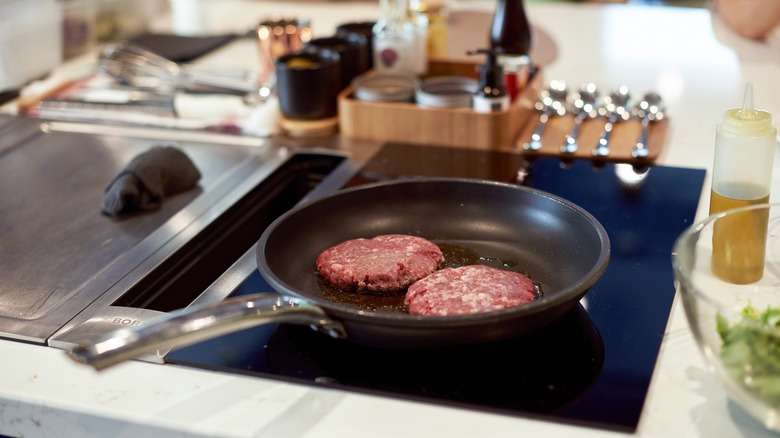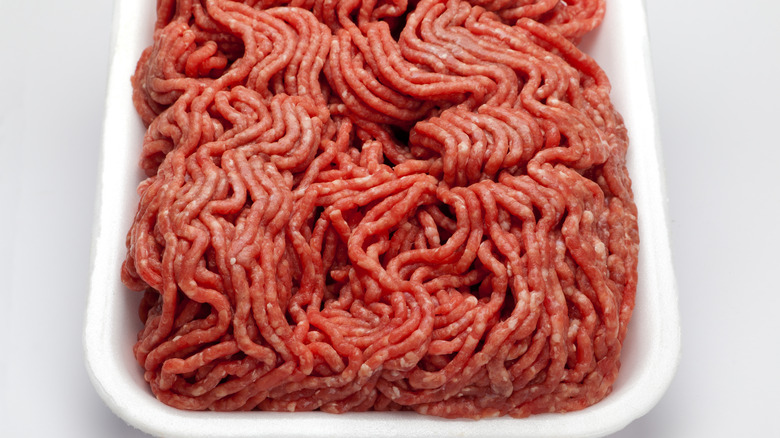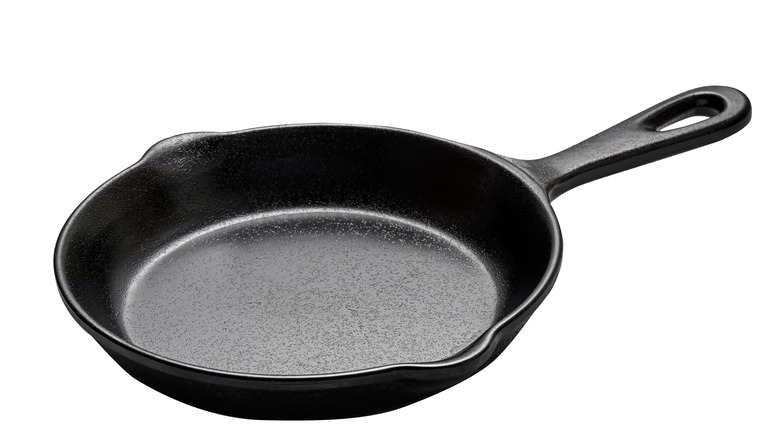The Oil Mistake You've Been Making With Stovetop Burgers
A classic burger is deceptively simple. While it's usually made up of just a patty and a bun, there are millions of iterations of burgers around the world, from beef to pork, lamb, or fish, and of course veggie. You don't need to be a chef to form and cook a simple burger, however a lot of people make a common mistake for fear of sticking when they're cooking a burger on the stovetop — using too much oil.
While it's true that you do need a little bit of oil on the patties to get a sear going in the hot pan, you don't need much. Most burgers, especially those made with ground beef, already have fat blended in with the meat. If you use too much oil in your pan, all you're really doing is adding more grease, which will make the cooking process messier and can be unsafe. You'll also potentially get splattered with hot grease, which can burn your skin and ruin your clothes. If you're planning to cook some burgers on the stovetop, all you need to do is rub the outside of the patties with a light coating of oil before you season them and put them in a hot pan.
The best burgers have some fat
Burgers, especially those made with beef, need some fat to keep them juicy, so select a grind that has at least 20 percent fat in the blend. The more you plan to cook your beef burger, the more fat you should have in the mix, because the fat will keep it from drying out. So for example, if you normally cook your burgers medium well or well done, you should get meat that has a ratio of 70:30 beef-to-fat. If you prefer medium rare burgers, or sliders like Guy Fieri's, you can use a leaner meat ratio, like 80:20 beef-to-fat, because they aren't on the heat as long as medium well burgers.
Because burgers already have fat, you won't need a lot of added oil in the pan to keep them from sticking. When the burger meat warms up, the fat inside will start to break down and melt away from the meat. This is why when you cook the burger for a few minutes some fat will start to appear in the pan. This fat will lubricate the pan surface just like oil, so just be patient and let the heat do the work. All you need to start is about a tablespoon of oil, which you can rub into the patties when you season them.
Use a cast iron pan
Another important way to keep your burgers from sticking is using a heavy-bottomed pan for cooking. If the pan is hot before you put the meat down, you'll get a nice hard sear on the surface of the burger and it won't stick. This is because proteins in the meat form molecular bonds with the metal of the pan. When the pan is preheated, the thin coating of oil will heat up and start to cook the surface of the burger before it actually touches the surface of the pan, which will keep it from sticking.
Any good-quality pan with a heavy bottom will work for burgers, like tri-ply cookware, however a cast iron pan is particularly ideal for this job because when it's seasoned properly it can conduct heat evenly and has some natural nonstick properties. Seasoning a cast iron pan is a process of baking oil onto the cast iron surface through a process known as polymerization, according to Lodge, a company that makes cast iron cookware. Cast iron will also ensure you get a good, dark sear on your beef, which is more difficult with nonstick pans.
If you follow all these guidelines, you can make the perfect stovetop burger without too much extra fat in the pan, which can splatter around the stove and make a mess, not to mention burn your skin, wreck your clothes, and even potentially start a grease fire.


